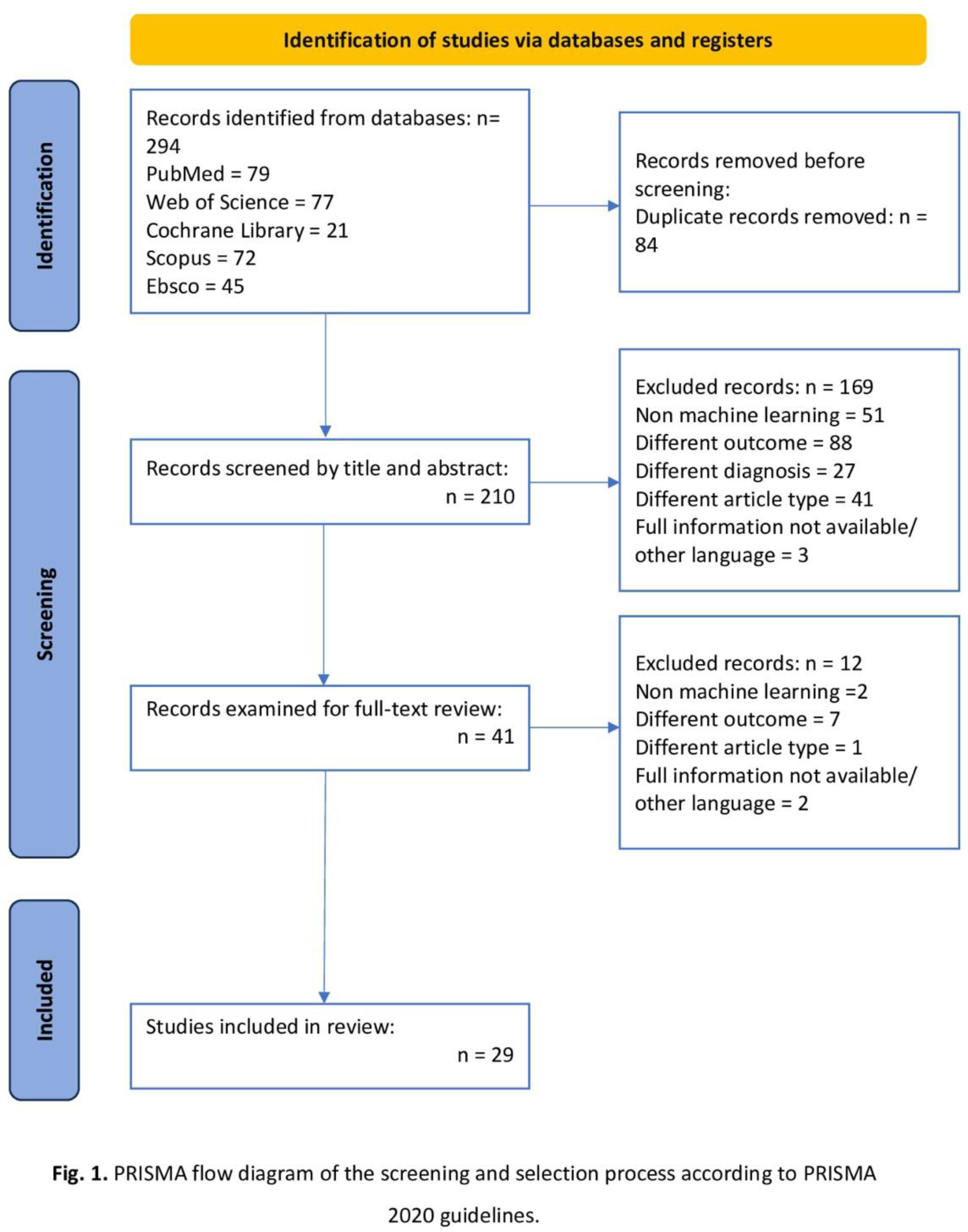

Background: Patients with Rheumatoid arthritis are diverse, varying in symptoms, severity, affected joints, and autoantibodies. Heterogeneity in response to treatment is also common and presents a clinical challenge. Several features have been identified as potential predictors of treatment outcomes. However, they have not been used to guide treatment selection in clinical practice.
Objectives: This study aimed to investigate the current status and performance of machine learning (ML) approaches in providing reproducible treatment response predictions.
Methods: We searched PubMed, Cochrane Library, Web of Science, Scopus, and EBSCO databases for cohort studies that derived and/or validated ML models focused on predicting treatment response. We extracted data and critically appraised studies based on the Transparent Reporting of a Multivariable Prediction Model for Individual Prognosis or Diagnosis (TRIPOD) and Prediction Model Risk of Bias Assessment Tool (PROBAST) guidelines.
Results: From 210 unduplicated records identified by the literature search, we retained 29 eligible studies. Of these studies, 10 developed a predictive model and reported a mean adherence to the TRIPOD guidelines of 45.6% (95% CI: 38.3 – 52.8%). The remaining 19 studies not only developed a predictive model but also validated it externally, with a mean adherence of 42.9% (95% CI: 39.1 – 46.6%). Most of the articles had an unclear risk of bias (41.4%), followed by a high risk of bias, which was present in 37.9%.
Conclusion: In recent years, ML methods have been increasingly used to predict treatment response in RA. Our critical appraisal revealed unclear and high risk of bias in most of the identified models, suggesting that researchers can do more to address the risk of bias and increase transparency, including the use of calibration measures and reporting methods for handling missing data.
REFERENCES: [1] Lequerré T, Rottenberg P, Derambure C, Cosette P, Vittecoq O. Predictors of treatment response in rheumatoid arthritis. Joint Bone Spine 2019;86:151–8.
[2] Kedra J, Davergne T, Braithwaite B, Servy H, Gossec L. Machine learning approaches to improve disease management of patients with rheumatoid arthritis: review and future directions. Expert Rev Clin Immunol 2021;17:1311– 21.
[3] Miyoshi F, Honne K, Minota S, Okada M, Ogawa N, Mimura T. A novel method predicting clinical response using only background clinical data in RA patients before treatment with infliximab. Mod Rheumatol 2016;26:813–6.

Acknowledgements: NIL.
Disclosure of Interests: None declared.